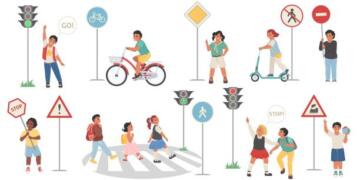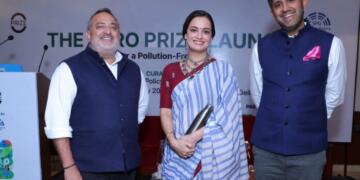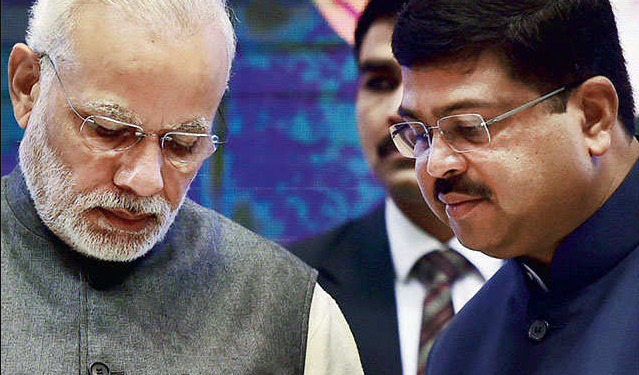Since the Modi government stormed to power, the culture of projects getting delayed in spite of tall promises seems to have become the thing of past. The Ministry of Petroleum and Natural Gas has achieved its target of providing Liquefied Petroleum Gas (LPG) connection to 5 crores ‘Below Poverty Line’ (BPL) families before the deadline. So, the government has decided to extend the scheme to all ration card holding families. After the extension of the scheme, at least 1 crore households are going to become the new beneficiaries of the scheme. The new beneficiary must have a ration card, Aadhar card and should be able to identify themselves as poor through self-declaration.
On 1st May 2016, PM Modi launched Pradhan Mantri Ujjwala Yojana (PMUY) in Ballia, Uttar Pradesh. Under this programme, 5 Cr LPG connections were to be provided to BPL families with a financial support of Rs. 1600 per connection in the next 3 years. With the clear intent of empowering women, the connections were to be issued in the name of women of the households. 8000 Cr budget was earmarked for this project. In this year’s budget, finance minister Arun Jaitley announced 4,800 crores for the scheme to target 8 crore households, a target expected to be achieved by 2020.
The scheme was first opened to BPL households but subsequently extended to all Scheduled Caste and Scheduled Tribe households, beneficiaries of the Pradhan Mantri Awas Yojana and Antyodaya Anna Yojana, forest dwellers, most backward classes, tea garden, and ex-tea garden tribes, and people residing in islands or river islands. Among the 5.8 crore connections distributed so far, 3.8 crores are among the Socio-Economic Caste Census (SECC) list and 2 crores for other mentioned lists. The applications for the new connections have tapered down as almost every household in the country has availed the connection. The government, therefore, has decided to open the scheme for all poor household irrespective of their caste.
The scheme was launched to provide clean energy to the poor households in the country which used firewood, dung cakes, coal, or kerosene for cooking. According to WHO estimates, about 5 lakh deaths in India occurred due to unclean cooking fuels. Indoor air pollution is also responsible for a significant number of acute respiratory illnesses in young children. According to experts, having an open fire in the kitchen is like burning 400 cigarettes in an hour.
The Ujjwala Yojana coupled with the Deen Dayal Upadhyaya Gram Jyoti Yojana, Awas Yojana (Gramin), Antyodaya Anna Yojana beneficiaries is expected to deliver good results for the country. These schemes have brought the marginalized section of the society into the mainstream. More than 44% of the Ujjwala Yojana beneficiaries are from SC/ST communities and hence the scheme is yielding good results by safeguarding the health of women and children in poor households.

























